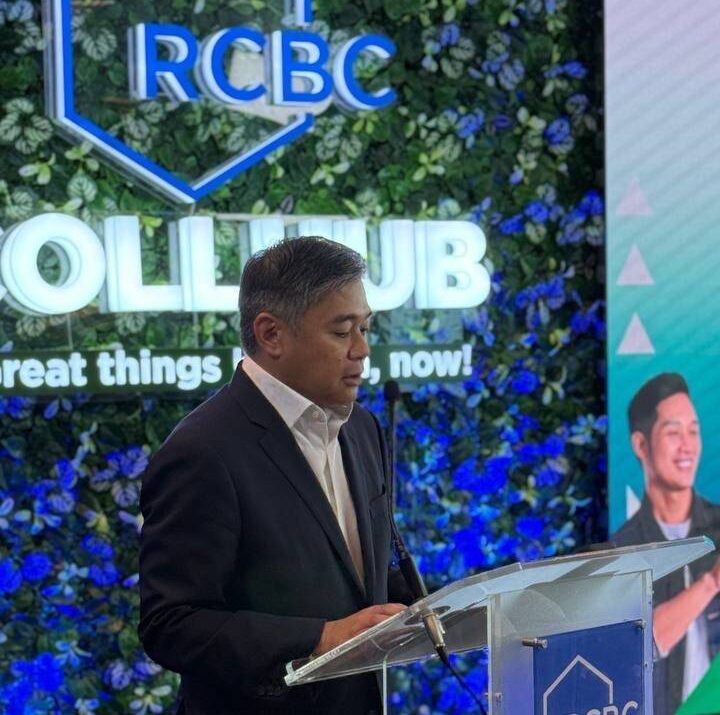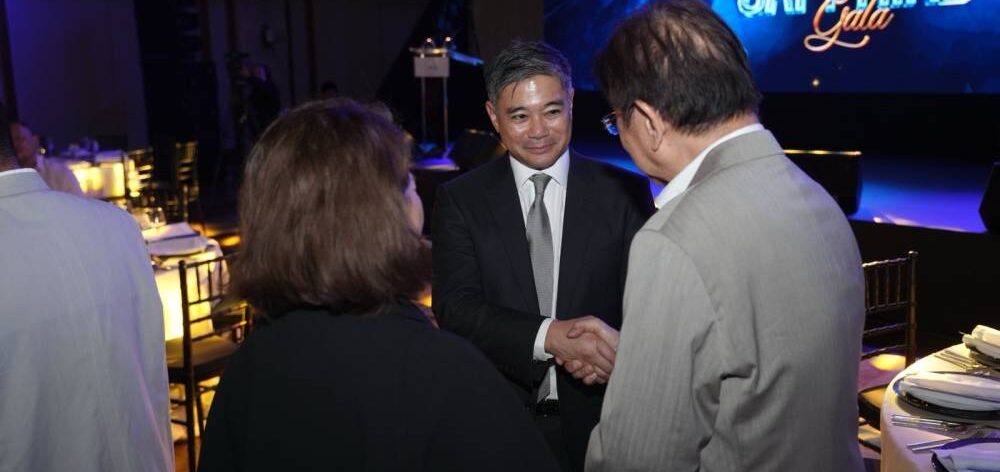MANILA, Philippines — When the new CEO is an ex-US Navy lieutenant—especially one who had crewed in a nuclear submarine that took on classified geopolitical missions—expect him to be ready not just to secure the territory, but win new allies and battle competitors with strategic planning and thoughtful tactics.
It’s been decades since that memorable six-year stint as a US Navy man, but Reginaldo Anthony Cariaso, the new president and CEO of Rizal Commercial Banking Corp. (RCBC), is still very much wired to that kind of discipline, intelligence gathering, brainstorming and military precision that shaped his younger self.
The 57-year-old banker, who looks younger than his age, intends to apply those lessons as the new captain of RCBC.
READ: BIZ BUZZ: RCBC enters new era
“When you want to take on a big task, like a battle or whatever, you combine arms operations. You use multiple assets and you optimize each of their use, and you coordinate and communicate when and how you use it,” Cariaso says in a recent media chat, his very first since taking on the top post at the Yuchengco-led bank.
When going after a well-defended territory, for instance, Cariaso says it will be foolish to deploy the marines and the army right away.
“You take out the satellites so you blind them, take out their GPS. You send in stealth aircraft to take out their air defense systems. Then your bombers and your cruise missiles come in. You take out the bridges, the reserves, the supply lines … Then you soften the defenses some more,” he says.
It’s also crucial to know the lay of the land, or sea, or air: use spy planes or drones to see where the enemy is, where it’s not, and analyze how best to deploy assets, he reckons. If and when needed, they can use decoys and camouflage before sending in the army and the mechanized systems.
“By then, it (enemy) has softened up, so that it’s easier. Because if you send your army and your mechanized systems there first, in a well-defended place, you lose those. Or even if you win, it becomes extremely costly. They become decimated,” he explains.
“We’re going to do the same with the banking assets.”
Double-digit ROE
Asked what his “deliverables” are as the new RCBC chief, Cariaso says he still has to articulate his ideas to the shareholders and stockholders, and get the team to “buy in.”
“The first thing I really want to influence is how we work together as a bank, as a team and that’s really important, because I think that there’s a lot of upside if we do it,” he says.


Cariaso speaking at the July 2 event of open payments platform SynerFi, a partnership with Higala Group—CONTRIBUTED PHOTOS
In broad terms, however, he is keen on bringing the bank’s return on equity (ROE) to a double-digit level on a sustainable basis starting 2026.
In 2024, RCBC’s consolidated ROE was 6 percent, net of dividends on hybrid securities.
He also expects RCBC to grow its loan book in line with the 9 to 11 percent pace of expansion in the industry. But he notes that RCBC will likely grow faster in the consumer segment, such as credit cards, auto loans and housing.
The current loan mix is currently skewed in favor of corporate and micro, small and medium enterprises, with a combined share of 60 to 65 percent, while consumer loans comprise the remaining 35 to 40 percent.
Cariaso also intends to build on the digitalization initiatives of his predecessor, Eugene Acevedo.
“I am going to ride the strengths of what RCBC has already established. It has already established a reputation in the market as being digitally innovative,” he says.
“Digital is the way to go, because it’s proven that it’s more cost-effective. It’s easier to scale. It’s also now much more readily available, and it’s also changing so fast. And the generations are more digitally native, so we have to grow and adapt to that,” he says.
READ: US Navy commander’s visit boosts submarine defense cooperation – PN
RCBC currently has a client base of about 4 million, representing a mix of depositors and borrowers.
“Our customer base is is maybe smaller than you might think for a medium-sized bank compared to others, but the quality of the customer base is actually very, very good. Of course, one of the goals will be to expand the customer base quite a bit.”
Strategic growth is seen in project finance, particularly in sectors like renewable energy, data centers and Philippine Economic Zone Authority-registered enterprises. He intends to focus on “value-added” services, rather than plain-vanilla lending.
He also wants to optimize the bank’s brick-and-mortar presence by expanding branches selectively, enhancing the ATM network and developing strong partnerships.
During his term, RCBC is expected to invest more in people, technology and partnerships.
No stranger to RCBC
Cariaso, who joined RCBC in 2023, brings to the table nearly three decades of experience in institutional and investment banking.
And he had enough time to get to know the bank before taking on the CEO role at RCBC. He served as Acevedo’s deputy CEO for months before the July 1 turnover.
Before joining RCBC, he worked at the Bank of the Philippine Islands for 10 years. By 2018, he was tasked to lead BPI Capital and thereafter, assigned to head strategy, products and support group at the parent bank.
Earlier on, he held senior roles at Nomura International as well as JP Morgan in Hong Kong.
Born in the Philippines, his family moved to the United States when he was three, in search of the proverbial greener pastures. His dad worked as an accountant and his mom, as an administration staff.
He grew up in Queens and majored in chemistry at the University of Pennsylvania.
After college, he joined the US Navy. With his background in chemistry, he was assigned to work with nuclear submarines, where the propulsion systems were nuclear-powered. He remembers being in underwater missions for as long as five weeks at a time.
He remembers being in a submarine team that played cat and mouse games with Russian submarines in the early 1990s, right after the fall of Berlin Wall.
In the Mediterranean, he worked with a team that supported battle carrier groups. He likewise
experienced being part of a submarine team that dealt with anti-drug smuggling in the Caribbean, coordinating with the US Coast Guard to intercept drug shipments.
After six years with the US Navy, he was ready for a new adventure. When JP Morgan started building an investment banking team in Hong Kong, he saw an opportunity and “raised his hand” to join.
Deep inside, he wanted to relocate to Asia to learn more about the land of his birth.
“I just felt like I wanted to get to know my culture more, be closer, maybe even be lucky to do a deal in the Philippines. So here I am,” he quips.
/rwd
Great Job & the Team @ INQUIRER.net Source link for sharing this story.




